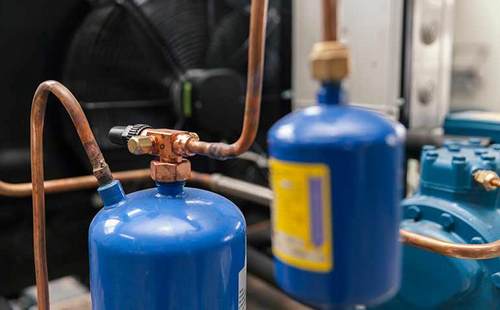PFAS ban could impact “natural” refrigerants
October 04, 2023

Refrigeration, air conditioning and heat pump component manufacturers have added their voice to the need for certain “critical exemptions” from any future PFAS bans.
Members of ASERCOM, the European association of component manufacturers, have emphasised in its response to the PFAS ban proposals currently being considered by the European Chemical Association (ECHA), that the replacement of PFAS elements in systems could necessitate substantial component redesigns.
The PFAS ban proposals submitted to the ECHA in January by Germany, the Netherlands, Norway, Sweden and Denmark, called for a ban on all PFAS substances under a definition that would include practically all HFC and HFO refrigerants, as well as the fluoropolymers used in a number of critical refrigeration components. These components include vital gaskets and other sealing systems, electrical and electronic components, and wear-resistant coatings.
Significantly, ASERCOM has expressed concerns that the proposed PFAS bans would also impact the use of “natural” refrigerants.
“To progress with decarbonisation efforts within our industry, it is imperative to meticulously manage the entire PFAS dossier,” stated ASERCOM president Marco Masini. “Transitioning to “natural” refrigerants necessitates even more the use of fluoropolymers which are encompassed in this ban; hence, we are advocating for the introduction of exemptions for such materials.”
ASERCOM maintains that its members are collaboratively exploring alternative substances with their supply partners, but viable solutions achieving equal performance are not yet identified.
The organisation’s manufacturers are said to be grappling with concerns over friction, lubrication and wear and extreme conditions, such as elevated refrigerant discharge temperatures for heat pumps with R290, or low temperature refrigeration applications with CO2 at very high pressures.
“This re-design would result in further testing needs of the compressors and other main components as well as of the final equipment,” said Dr Heinz Juergensen, ASERCOM’s PFAS team leader. “Employing alternative substances for different refrigerants would escalate the variety of components managed in production, wholesale, and installation sites. This could elevate the risks of failures and damages arising from improper selections.”
“We’ve requested exemptions in the PFAS ban proposal to maintain energy efficiency and leverage the unique properties of fluoropolymers, for instance, adhering to GWP limits due to F-gas regulations,” Dr Juergensen added.


